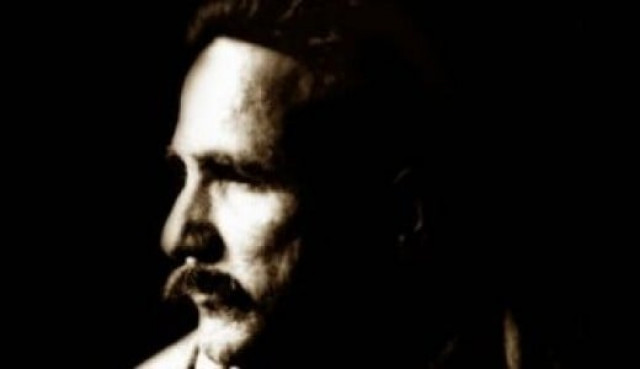Debate on whether Iqbal was religiously driven
Lecture organised on Muhammad Iqbal and his poetry.

During a lecture by author Salahuddin Darvesh titled “Fikre Iqbal ka Almia” (The Tragedy of Iqbal’s poetry), a heated debate broke out on whether Iqbal’s poetry was religiously driven.
The focus of the lecture, organised by the Islamabad Cultural Forum, was whether the poet’s works imparted messages of passivity to Muslims or if he used Islam as an identifying tool so his readers could strive to bring change in their lives and the promised land – Pakistan.
Darvesh’s stance was the former, as he posited that in contrast to other thinkers and poets of the time from around the world who used scientific and sociopolitical inquiry, Iqbal’s premise was based on Islamic ideology.
Darvesh argued that this focus on theology instead of inquiry set the Pakistani community back as it hindered theoretical progress.
“Even now, instead of developing our own thought processes and disciplines, we have to import them because we didn’t develop our analytical base before partition or after,” he added.
Ashfaq Saleem Mirza, who moderated the question and answer session, argued that Iqbal had a somewhat Islam-centric view as he saw Muslims as the pioneers of deductive thought and renounced the inductive thought of the Greeks and empiricism of the likes of Francis Bacon.
However, Mirza added that Iqbal’s reconstruction of religious thought was quite varied from his poetry. “He tried to prove the validity of Islamic thought through the diction and style of modern poetry. In that sense, his style was scholastic.”
The contradiction of Iqbal’s content to form was acknowledged, but Foreign Ministry Director Mahmood Akhtar argued that he used contradiction to make the concept of pro-activity more relevant to Muslims by using Islamic terms the public was familiar with.
“His basis for inspiration was the Quran and the life of the Prophet’ (PBUH), but his main message was for Muslims and to make them feel empowered through Islam,” he explained.
He registered his disagreement with the notion that Iqbal perpetuated passivity through his poetry, saying that Iqbal portrayed mankind, particularly Muslims, as co-workers in the shaping of ideas, humanity and the universe.
As a retort, Darwesh said Iqbal firmly believed that out of human spirituality, material action could take place, but he also argued that material change was only possible through material action, which had to be informed from in-depth studies of sociopolitical issues, not just religion.
He further noted that Iqbal’s poetry often focused on the solitary journey of man to be one with God rather than calling for making the existing world a better place through communal discourse and action.
In order to explore this debate more fully, next week’s lecture will be headed by Mahmood Akhtar, who will explain his viewpoint further at the TVO house.
Published in The Express Tribune, July 12th, 2012.



















COMMENTS
Comments are moderated and generally will be posted if they are on-topic and not abusive.
For more information, please see our Comments FAQ